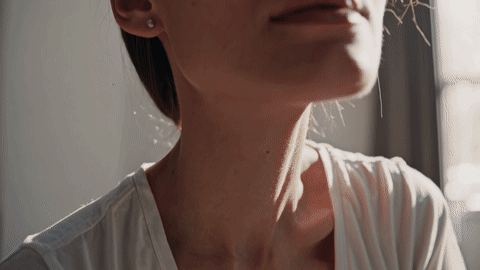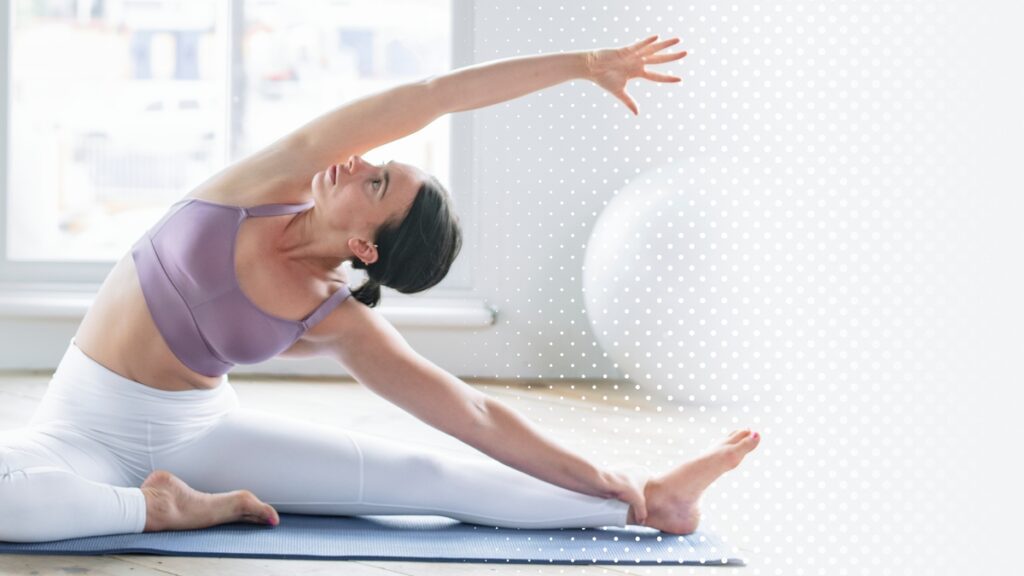Most people think mental health improves through big, sweeping changes like a new routine, a new mindset or a dramatic lifestyle shift, but you might be surprised to learn there are micro-habits that improve mental health.

Real mental health growth usually happens in the subtle, almost invisible choices you make in the middle of an ordinary day. These small choices are tiny, doable and repeatable. Micro-habits don’t demand discipline or huge motivation. They meet you exactly where you are, even on the days when you feel overwhelmed or stretched thin. And that’s their power. They’re so small you don’t resist them. But they stack. They compound. And over time, they gently shift your emotional baseline in a way that feels steady and sustainable for the longterm.
If you want to feel more grounded, emotionally regulated, and mentally clear you need to start small.
Here are some of the simplest micro-habits that make a real difference.
Table of Contents
A Quick Note About A Powerful Resource For Your Mental Well-Being Before We Dive In
As you know I’m a huge proponent of Mental Wellness and ensuring we all get the help we need when we need it. And of course, I don’t want you just to get any help — I want you to get the right help — so I am now sponsored by BetterHelp.
BetterHelp is the world’s largest therapy service, and it’s 100% online.
BetterHelp offers a network of over 25,000 licensed and experienced therapists who can help you with a wide range of issues.
Just click on the link below, answer a few questions and get matched with a therapist from the network.
One of the most amazing features of BetterHelp: if you don’t jive with your therapist, you can switch to a new one that’s a better fit for you any time free of charge.
With BetterHelp, you get the same professionalism and quality you expect from in-office therapy, but with a therapist who is custom-picked for you, more scheduling flexibility, and at a more affordable price.
👉 Click Here For 10% Off BetterHelp Right Now With This Link!
1. The 10-Second Breath Reset

It sounds almost too simple, but slowing your exhale is one of the fastest ways to calm your nervous system. A single 10-second reset interrupts overthinking, reduces stress, and gives your brain just enough space to respond instead of react.
Try this:
Inhale for 4.
Exhale for 6.
Do it any time your mind starts speeding up.
2. Touch One Grounding Object
Your senses are the quickest way to interrupt anxious thoughts. Touching a familiar object like your ring, a stone, a necklace, the edge of a book anchors you back into your body.
It’s a physical cue of safety, and your mind follows.
Checkout sensory tools in the shop.
3. The One-Question Check-In
Once a day, pause and ask:
“What do I actually need right now?”
You’d be shocked how often you’re running on autopilot, ignoring your mental, emotional, or physical needs. This tiny check-in reconnects you to yourself.
4. A One-Minute Stretch to “Open the Body”

Shoulders tight? Neck locked? Chest closed?
Your body shape influences your emotional state more than you think.
A simple one-minute stretch — rolling shoulders back, opening your chest, loosening your jaw — shifts you out of subtle threat mode and tells your brain you’re safe.
5. Two Minutes of Sunlight
You don’t need a long walk or a full morning routine.
Just step outside and face the daylight for two minutes.
Natural light boosts serotonin, regulates your sleep cycle, and improves your emotional rhythm almost immediately.
6. Name What You’re Feeling
This is a classic neuroscience-backed habit.
When you label an emotion (“I’m overwhelmed,” “I’m tense,” “I’m sad”), the emotional centers of your brain calm down. Naming it helps you move through it.
Tiny habit. Real impact.
7. A 30-Second Tidy
You don’t need a spotless home. But a clear counter? A closed drawer? A made bed?
That small act of order reduces background anxiety and gives your mind one less thing to track.
This is not “cleaning.”
This is clearing.
8. Drink Water Before Your First Coffee
Hydration stabilizes mood, energy, and irritability. Cortisol levels regulate better. You feel more grounded fast.
This one micro-habit influences your whole morning.
9. One-Line Micro-Journaling
You don’t need a full page or a perfect journaling practice.
Just one line answering:
“What’s true for me today?”
This is enough to process emotion without pressure.
Of course I’ve got you covered with all sorts of journals – including the self-love workbook, therapist recommended therapy journals, the anxiety alchemist or if you want to just go deeper right now download the Ultimate Self-Inquisition Guide.
Read this post from my sister site about the Julia Cameron’s Morning Pages.
10. The 5-Second Pause Before Responding
This is one of the most underrated habits for mental health because communication affects it all including your relationships, your stress levels, your sense of connection. Everything.
A five-second pause shifts conversations from reactive to grounded.
Emotions settle. Words land softer.
And you avoid so many unnecessary spirals.
11. One “Good Enough” Meal a Day
Not perfect. Not Pinterest-pretty.
Just one balanced meal that steadies your blood sugar.
The connection between blood sugar and mood is real, immediate, and overlooked.
12. A 30-Second Nature Glance
Look at a tree. A plant. The sky.
Even a quick visual dose of nature lowers anxiety and reduces mental load.
Micro-calm for a busy brain.
⭐ Why These Micro-Habits Actually Work
These habits work because they’re doable. Accessible. Gentle.
They slip into your day without requiring willpower and over time, they create a more regulated nervous system, clearer thinking, and a calmer emotional baseline.
You don’t need a complete life overhaul to feel better.
You just need a few small shifts repeated with intention.
Start where you are.
Pick one or two micro-habits.
Let them become part of your rhythm.
Little by little, you’ll feel yourself changing not in one dramatic moment, but in the quiet way you move through an ordinary day.
To really level up habits then the power of habit stacking is a great thing to understand.
Comments +
Micro-Habits That Improve Mental Health
Mental Health